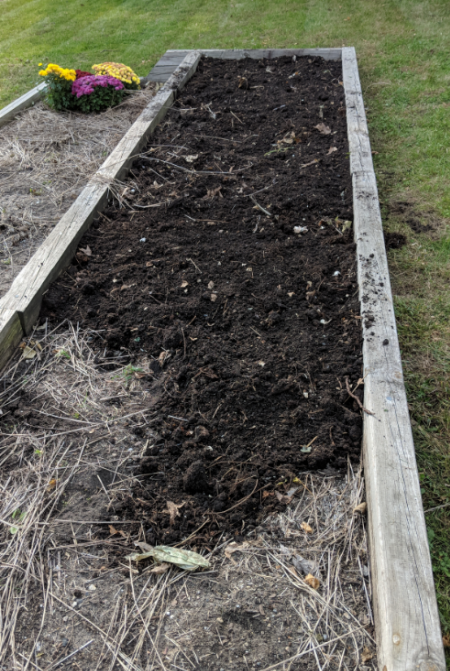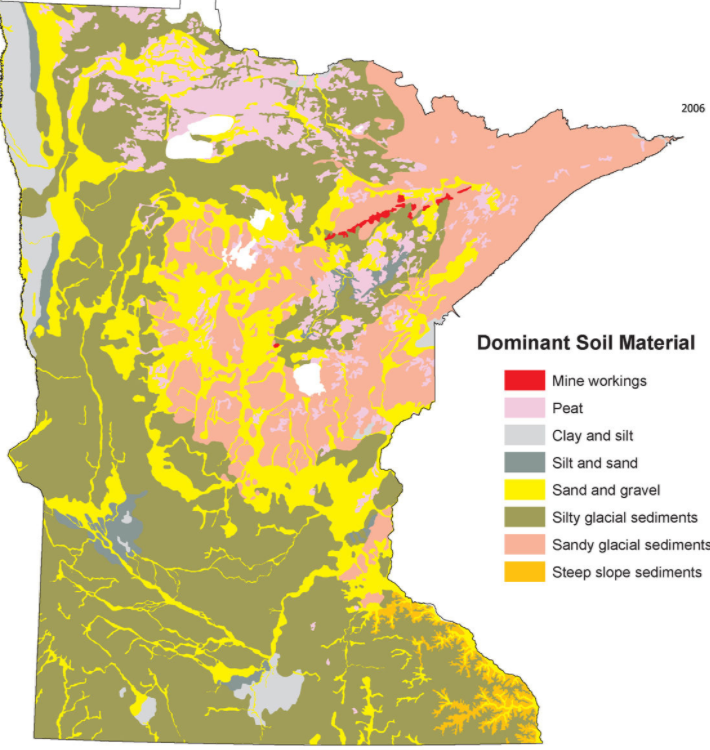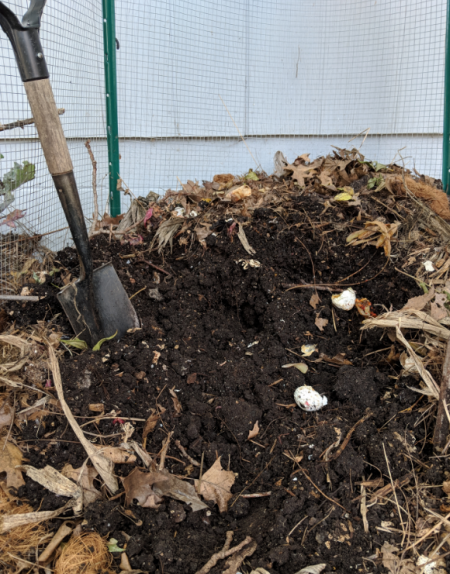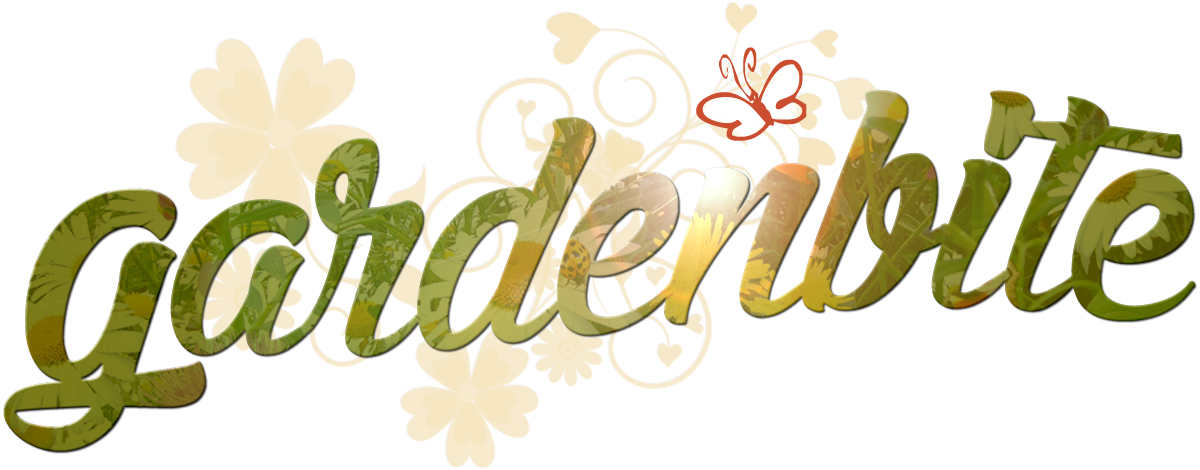Click below to listen to my 2 min. Garden Bite radio show: The foundation of life: Soil
Yesterday I talked about getting a soil test. And not just the kind from the big box store but through soil laboratories at University Extensions. Today, let’s talk soil. It truly is the foundation of life!

Soil holds the keys to a plant’s ability to take up nutrients, water and oxygen. Soil also acts as a filter for rainwater, cleaning it as it makes it’s way into our aquifers. If you prepare your garden beds, you give your plants the best chance to, not only survive, but thrive.
Soil is simply amazing when you learn more about it. I love how wonderful it smells as I first start planting my Spring garden and how it feels in my hands as I dig.
2006 Minnesota soil type map: 
Wisconsin soil information from the USDA
More for Wisconsin: Wisconsin soil groups
A rudimentary test for discovering if you have sandy, clay or loam soil is to take a fistful, wet it and if it ribbons up, it’s more clay, if it falls apart, it’s more sand and if it crumbles nicely, it’s more likely loam. Of course a soil test will verify this information.
Adding compost at any time is always a good idea, this fluffs the soil which allows for plants roots an easier time growing. Think about how tough compacted soil is to break up, that’s what the roots of plants have to grow through.

You can fork in the compost or not. It depends on how much energy you have! I have done both and would fork it in again.
